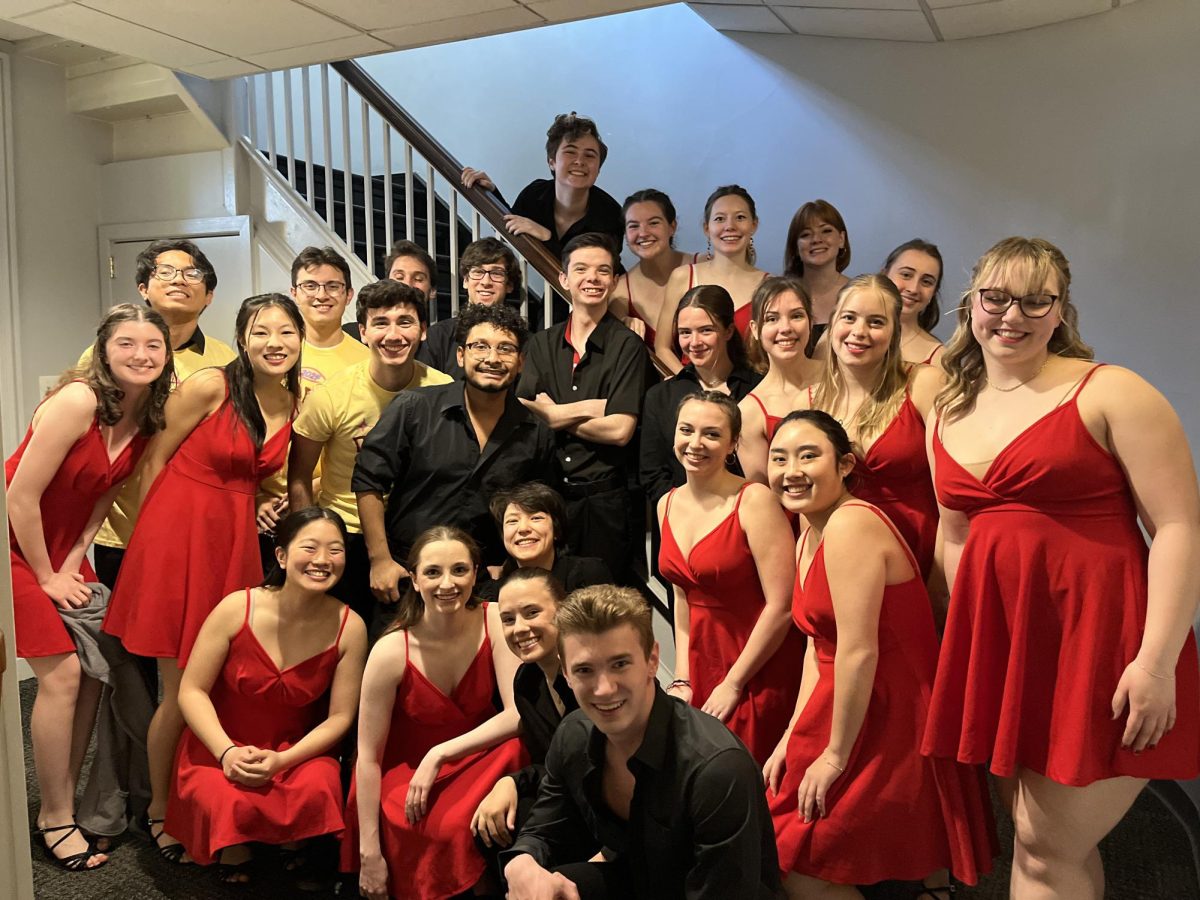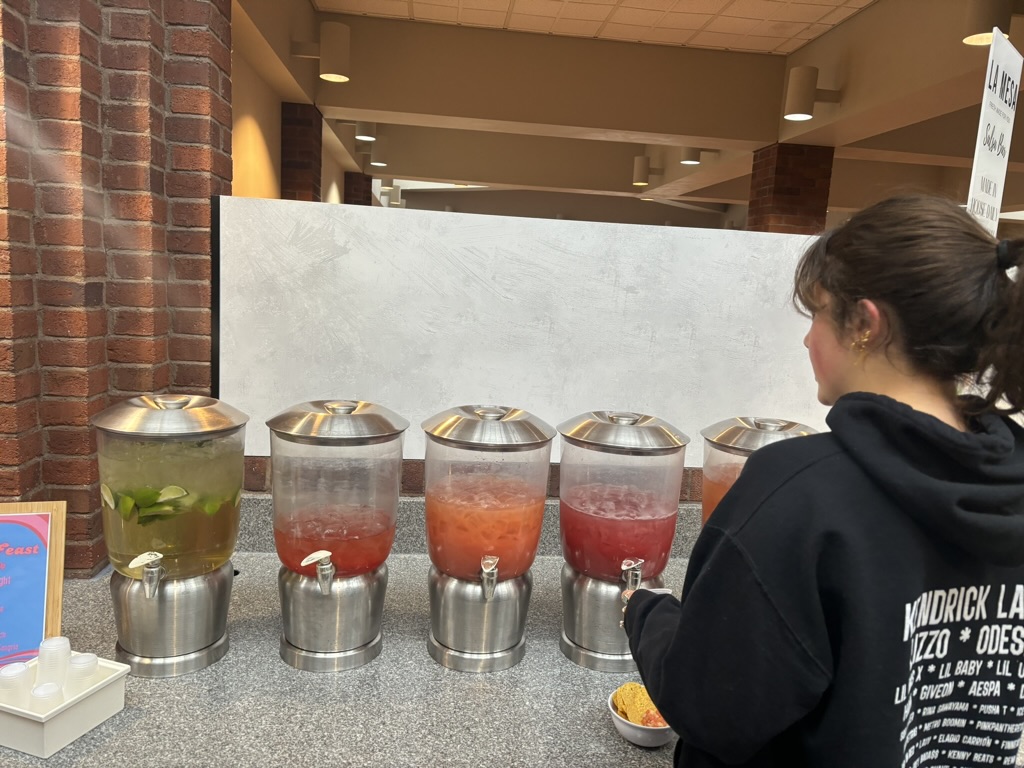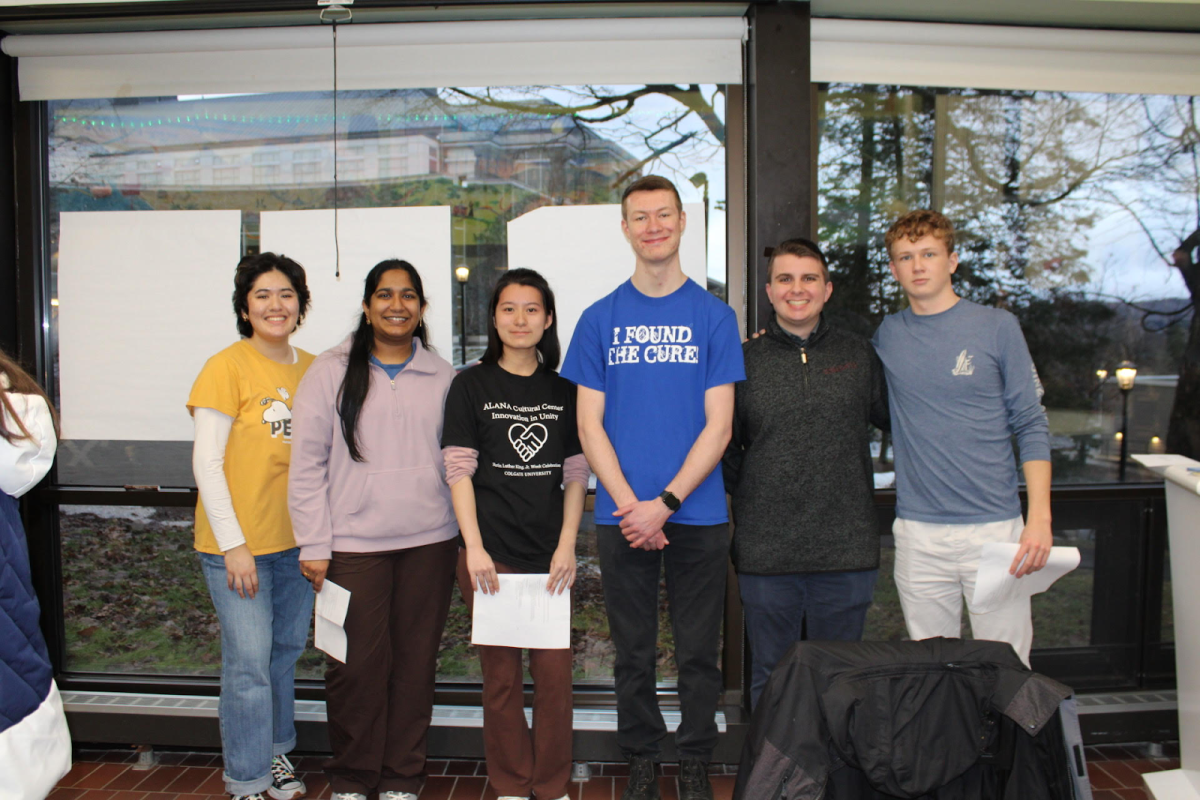Colgate University students and faculty filled Hamilton Movie Theater at 7 Lebanon St. on Jan. 26 to watch “The Gatekeepers,” the first film in the Peace and Conflict Studies (PCON) Program’s Spring 2024 Film Series. The documentary, directed by Israeli filmmaker Dror Moreh, uses in-depth interviews, archival footage and computer-generated imagery to re-examine past events in the Israeli-Palestinian conflict.
Professor of Peace and Conflict Studies Susan Thomson explained why she selected this film to begin the series, including that the film allowed the students to start conversations about complicated issues, such as the United Nations (UN) guidelines on conflict.
“I chose the film to start our PCON Spring 2024 Series to provide a real-world case study of Israel’s tactics of war through the lens of that country’s Six Day War.” Thomson said. “The film will allow us to speak about a sensitive — and for some, difficult — topic using UN laws on war and occupation as framing mechanisms.”
The film chronicles the activities of the Shin Bet, Israel’s internal security service. David Ben-Gurion founded the Shin Bet in 1949 to provide internal intelligence. However, after the 1967 war, the organization’s mission shifted to defending Israel against terrorism in the occupied territories of the West Bank and Gaza. A secretive and clandestine organization, the Shin Bet operates as an “unseen shield,” according to the Jewish Virtual Library.
First-year Ashley Shanahan reflected on the hidden nature of the organization.
“I found it interesting how leaders make consequential, life-altering decisions behind the scenes,” Shanahan said. “These people change the trajectory of history, and we don’t even know they exist.”
Moreh selected six former leaders of the Shin Bet, who were involved in the organization’s national security decisions, to participate in the film. Given the highly sensitive and classified topic, the participants were initially reluctant, but they eventually agreed to share their stories on camera for the first time. The interviewees included people who had led the Shin Bet for different periods: Avraham Shalom (1980 to 1986), Ya’akov Peri (1988 to 1994), Carmi Gillon (1994 to 1996), Ami Ayalon (1995 to 2000), Avi Dichter (2000 to 2005) and Yuval Diskin (2005 to 2011). Candid, self-critical and pragmatic, these leaders reflect on their past triumphs and setbacks and grapple with moral dilemmas.
“In the war against terror, forget about morality,” Shalom said in the film.
“One man’s terrorist is another man’s freedom fighter,” Diskin added.
Throughout the documentary, the leaders discussed their search for terrorists and their targeted assassinations of Hamas militants. While politicians demanded black-and-white answers, these leaders made decisions in a world of gray, grappling with the dilemma: If you strike a target, you might kill innocent people, but if you don’t strike, you might fail to protect people from an assault.
“There is something unnatural about it,” Diskin said. “What’s unnatural is the power you have to take three people — terrorists — and take their lives in an instant.”
After years of working in the Shin Bet, these leaders unanimously agreed on the importance of communication, trust and partnership with Palestinians.
“When you retire, you become a bit of a leftist,” Peri said.
These leaders describe the importance of achieving lasting peace and stability, but they are nevertheless cynical about the future.
“We are making the lives of millions unbearable,” Gillon said.
“The future is bleak. It’s dark, the future,” Shalom added.
First-year Grace Nelson reflected on the film’s ending.
“I like how the film does not shy away from presenting the reality of the situation,” Nelson said. “It does not sugarcoat the conflict or try to reassure the viewer. Instead, it lets us sit in discomfort.”
The film ends in an atmosphere of pessimism, leaving the audience with clarity rather than comfort.














